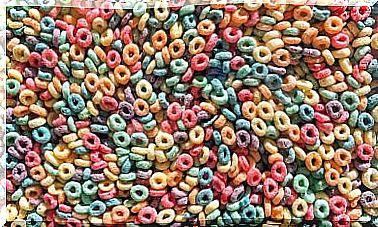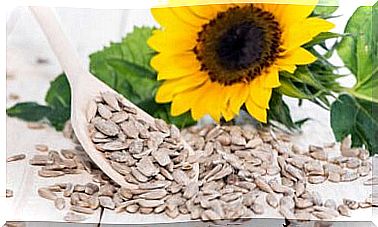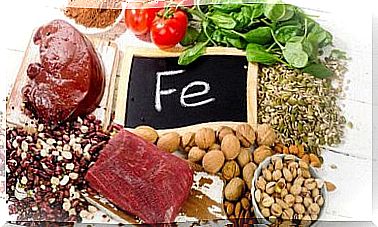Chia During Pregnancy: Benefits And Recommendations
Pregnancy is a delicate time and pregnant women should eat all the nutritious foods available. Chia seeds during pregnancy are positive if eaten in moderation, as they can also have some negative effects.
They can be eaten ground or whole and added to any type of recipe. Although you have to be cautious the first few times, since like many foods, they cause allergic reactions and digestive problems. Below we detail more about its use, benefits and other recommendations.
What are chia seeds?
This valuable food in the form of a small black grain is native to Mexico and Guatemala. There it has been part of the food and medicinal traditions for more than 5000 years. Today it is a booming product in many corners of the world.
It is an oilseed, so its composition stands out above all the presence of polyunsaturated fatty acids (mostly omega 3 and omega 6). It also provides protein, dietary fiber, vitamins, minerals (calcium, phosphorus and manganese) and antioxidants.
The benefits of chia seeds during pregnancy
In the gestation period it is important to pay attention to diet. Some nutrients are required in greater amounts to ensure the development of the fetus and avoid health problems in the mother. In addition, some minor annoyances such as constipation can be solved or alleviated with simple food guidelines.
Let’s see in detail what chia seeds can do in some cases.
Improve constipation
As the American Nutrition Society indicates, chia seeds provide a good amount of soluble fiber. This is positive when there is difficulty with bowel movements, as it increases the volume of stool and facilitates the process of expelling them.
Prevent the appearance of anemia
Iron deficiency is a common disorder in some pregnant women. It is more likely to happen if the level of this mineral in the body is low before conception. In addition, when there is already established anemia, it is aggravated by the circulatory changes of pregnancy.
So it is important to maintain adequate iron intake in this period when needs increase. Chia seeds help cover this increase, although it is not one of the most recurring foods, such as meat or legumes. It should be noted that it has an absorption similar to that of ferrous sulfate.
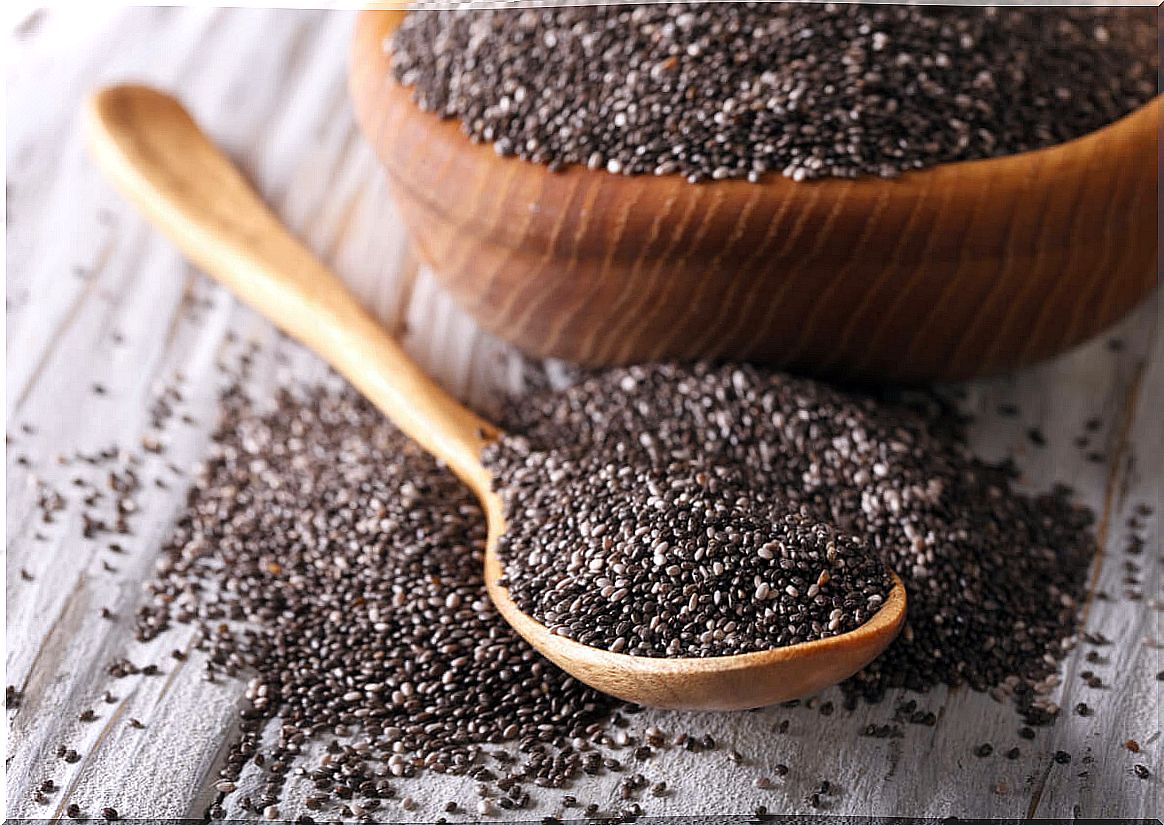
Strengthen bones
Aside from iron, another key mineral during pregnancy is calcium. On the one hand, it helps prevent adverse effects on the mother, such as the risk of osteoporosis and pre-eclampsia. On the other hand, it ensures good fetal growth and development.
As the American College of Obstetricians and Gynecologists points out, women over the age of 19 need 1,000 milligrams of this mineral daily. Two dessert tablespoons of chia seeds cover 20% of this value, providing almost 200 milligrams. This increases the variety of foods rich in calcium to be ingested.
Control sugar levels
High blood glucose values have negative health effects. One of them is the risk of developing type 2 diabetes. In the specific case of pregnant women, this represents a disadvantage for the baby and the mother, since its presence during pregnancy is associated with a greater risk of defects in the fetus and being overweight. .
Chia intake can help regulate blood glucose. As explained in scientific studies carried out with healthy adults, the consumption of 25 grams per day is positive in reducing the glucose peak after eating. It is also effective if it is present in some foods, such as bread.
Source of omega 3 fatty acids
This type of polyunsaturated fatty acid is crucial for a good development of the pregnancy and the fetus. The main source that supplies the body is small blue fish. But in addition, some plant foods provide a precursor: alpha linolenic acid (ALA).
Although it is important to know that chia seeds in pregnancy are not valid as the only source of omega 3, they are not negligible for that. This is because the body has a hard time converting ALA into useful forms. According to research, these active variants are responsible for the benefits of polyunsaturated fatty acids during pregnancy.
Satiating effect
A part of pregnant women gain more weight than they should during the gestation period. And as noted in a Cochrane review, obesity in pregnancy can be a problem for both mother and baby. There is an increased risk of high blood pressure, diabetes, caesarean sections, and high fetal weight.
For this reason, in some cases it is necessary to control the weight gain of pregnant women with diet and physical exercise. If there is this problem or the mother has a continuous feeling of hunger and desire to eat, chia seeds can help, as they have a proven satiating effect.
It has been found that consumption of between 7 and 14 grams per day can increase the feeling of satiety and reduce total calorie intake the next meal. In addition, blood glucose after eating grows more slowly. This is due to the presence of fiber and protein.
How can you eat chia seeds during pregnancy?
A stroll through the supermarket informs us of the great ubiquity of chia seeds. Today they are found in a large number of foods and preparations: sticks, cereal bars, cookies, breads, pasta. However, the main recommendation is to take them in their natural form.
To do this, the best option is to buy them crushed or grind them at home with a suitable device. This is how the body takes advantage of all the nutrients that the seeds contain. And this is how pregnant women can be favored for all the benefits.
Once ground, they are added in various preparations, spreading one or two dessert tablespoons. Some ideas to incorporate them are the following:
- Add them to the yogurt or cheese.
- In a fruit smoothie with yogurt, milk or vegetable drink.
- As an ingredient in mueslis or breakfast cereals.
- In a vegetable cream.
- Sprinkled on top in salads or vegetable dishes.
If they are used only to improve intestinal transit problems, it is enough to soak the chia seeds for a minimum of 10 minutes to soften. This will form a mucilage that will promote fluid absorption.
Does consuming chia have side effects during pregnancy?
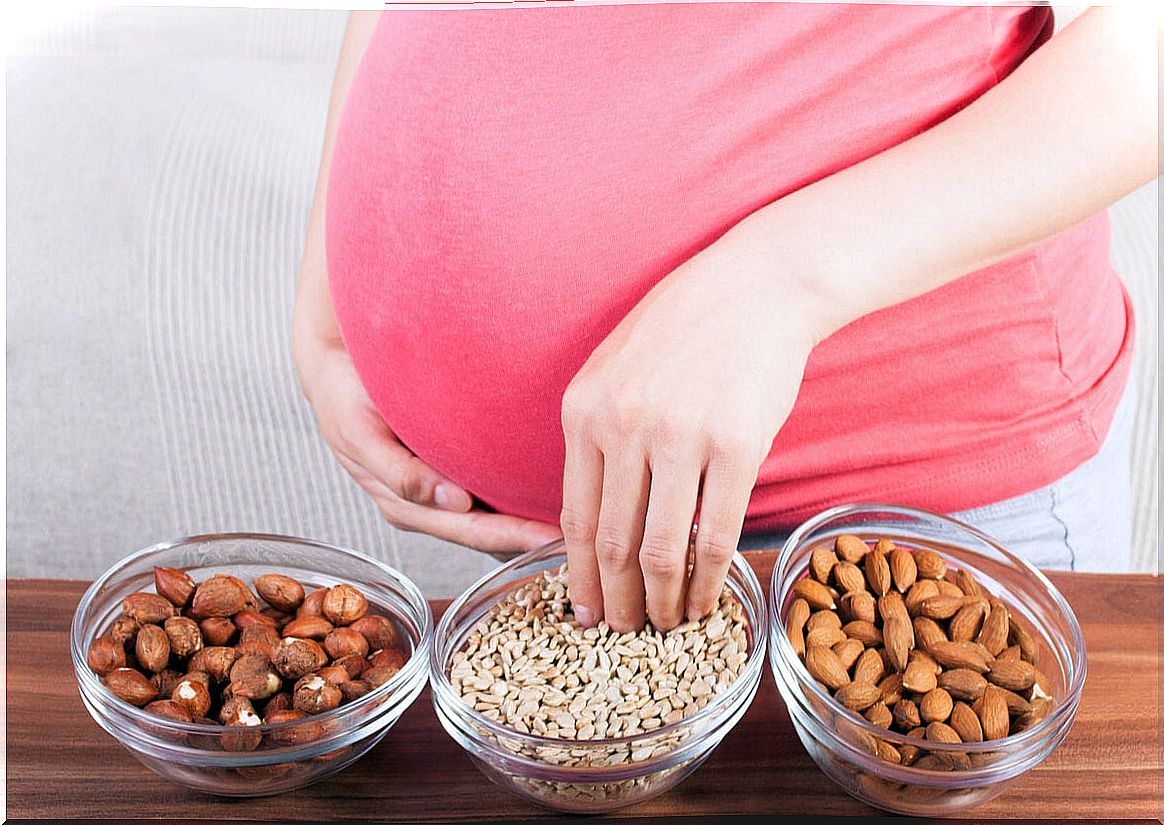
The European Food Safety Agency has evaluated the use of chia seeds. Following its introduction on the European market in 2010, no Member State has observed dangers that could put consumers at risk. So, as a general rule, chia consumption is safe for most people.
The possibility of an allergic reaction is highlighted. You have to be careful the first few times you consume it. In some occasions, it appears by cross reaction to allergy to sesame and peanut. In addition, excessive employment carries some of these symptoms:
- Excess fiber can cause an upset stomach, flatulence and even diarrhea.
- The seeds expand in contact with the liquid. On occasion, this has become a serious problem. For this reason, it is important to follow the consumption recommendations: soak them about 15 minutes before or spread them on the food.
The key points of chia seeds during pregnancy
It should be borne in mind that they can interact with some medications and reduce their absorption. It is recommended to discuss the intake or its introduction with the doctor if the woman receives a specific treatment due to her state of pregnancy.
The positive effects that this little food can have are proven, according to what we discussed in the article. That is why it is interesting to consume it in this period. Either to feel more energetic, to improve annoying symptoms or to help provide the necessary nutrients.
However, adding it little by little, if it is the first time it is taken, is a precautionary measure. Nor should you exceed the maximum amount of two tablespoons of dessert a day.
